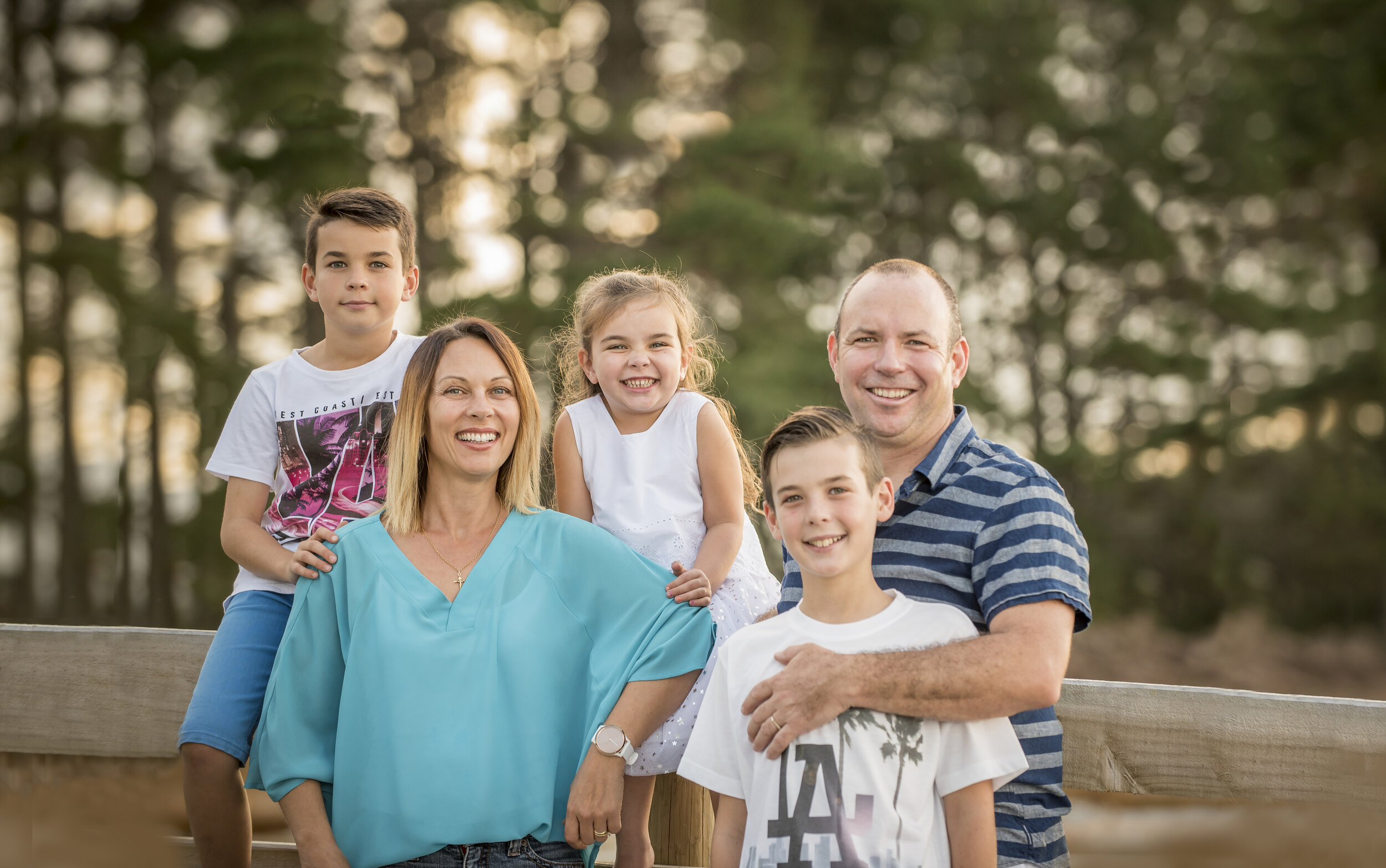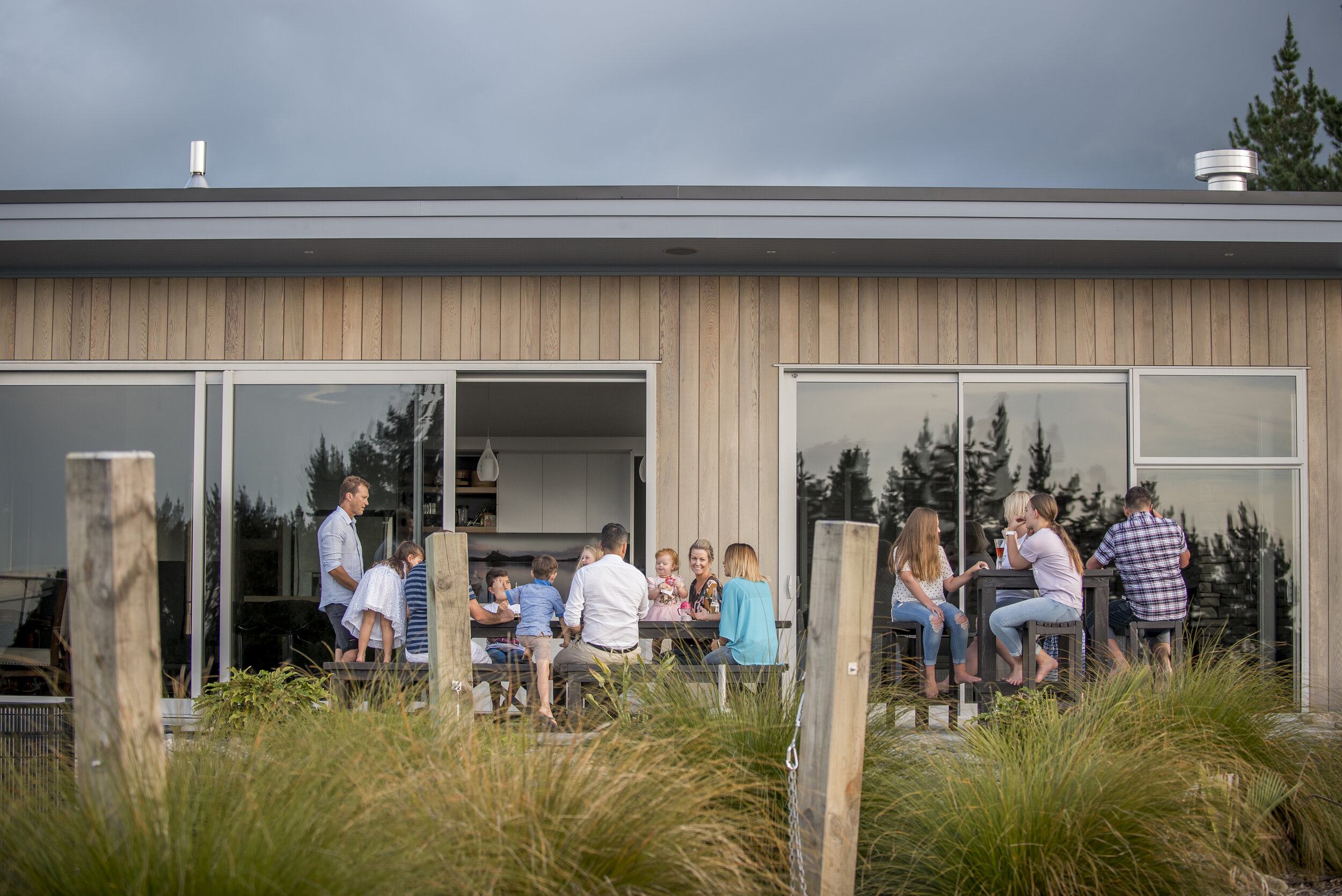The good life: trading your urban abode for a lifestyle block
WORDS LAURA TUCK PHOTOS BRYDIE THOMPSON
Do you dream of trading your urban home for a lifestyle block in the country with pets, chickens, pigs, a vege garden, fresh air and masses of space? Jeremy Pryor provides a snapshot of what rural life is really like.
Many of us would happily trade our noisy neighbours for peace, quiet and a supply of free-range eggs and freshly dug spuds. It’s a lifestyle that fits Jeremy Pryor of Bayleys Tauranga down to the ground. Not only does he sell the rural dream, he lives it too.
UNO: What’s rural living really like?
JEREMY: Most of us have experienced rural living to some degree – maybe you grew up on a farm like I did, or perhaps you had a friend with a cricket pitch on their front lawn. Lifestyle blocks are sought after because they allow you to have a taste of the country without all the hard work, like having to get up at 4am to milk cows. You can still maintain a corporate job, send your kids to the best schools and pop into town with ease.
UNO: How would you define the term ‘lifestyle block’?
JEREMY: There’s no black-and-white answer. I sell a lot of 3000m2 sections in residential lifestyle subdivisions, which are essentially nice homes with big lawns, as well as larger lifestyle blocks with enough land for grazing or an orchard.
UNO: What’s the best thing about living semi-rurally?
JEREMY: It’s fantastic being able to entertain without worrying about the neighbours. It’s also ideal for kids – Ash collects the eggs, Finn feeds the pigs and Charli helps me in the garden. They spend hours riding their bikes, playing basketball and in the pool, which is so much better for them than staring at a screen. We use the shed for storage, the camper and the boat. That’s the beauty of a large section, it allows you to be creative. You’ve also got the option for office space, which is great for the wallet and provides peace of mind for people like tradies, who store their tools at home. The other advantage is the potential for capital gain. If you buy an orchard on the edge of the city that then becomes subdividable, the value of the land can increase fivefold.
UNO: Who’s biting the bullet and going rural?
JEREMY: Lifestyle blocks have always been popular with retired farmers, but today we’re also seeing a lot of homesick Kiwis coming back from overseas who are looking to invest in a slice of clean, green New Zealand land. There’s been a surge in buyers who want to have chooks, plant a vege garden and eat organic produce; I call it the ‘Annabel Langbein effect’. We’ve also had an influx of people from other cities, as they’ve realised they can buy a rural property here for about the same price as an average home in Auckland. When people finally make the move, it can be seen as impulsive because it’s such a big change, but it’s usually been a dream for many years.
UNO: How do you blend a job in the city with a rural lifestyle?
JEREMY: Tauranga is the perfect location in which to enjoy the best of both worlds. My daily drive from Pyes Pa to work only takes 12 minutes on the express route, so traffic is never an issue, but with today’s technology, you could easily work remotely and live the dream. We have great restaurants, shops and schools right on our doorstep. The barter system in the rural community is also alive and well – we get our daily pig scraps from Four14 Espresso café, and in return, I give them fresh bacon.
UNO: Where are some of the best hidden spots for rural living?
JEREMY: Pyes Pa is fantastic, and I’m not just saying that because I live there! With the new Lakes subdivision and Tauranga Crossing shopping centre, there’s huge growth across the whole south-east side of town. Further afield, you’ve got Hawke’s Bay and the Coromandel, both of which are beautiful.
UNO: Your team at Bayleys seems really close – it looks like quite the party with all your families.
JEREMY: Real estate is a 24/7 job, but it’s also highly rewarding. We spend lots of time together, and Craig [Orr], Ike [Unsworth] and I also holiday as a team with our families – it’s the best type of chaos. In summer and winter, when things are a little quieter, I get to enjoy lots of quality time with my wife and kids. We love heading to the bach at Lake Rotoiti and try to get away a couple of times a year.
UNO: Any advice for those considering packing in the city for greener pastures?
JEREMY: It’s about choosing the right type of property for you, so do your research. If you’re after income, there are options with orchards or farms, or for Airbnb; the extra space will ensure your guests aren’t too close to your home, and they’ll pay a premium for a unique setting. But if you simply want more room and don’t mind doing a bit of gardening, the options are endless. Some people outsource maintenance, but I enjoy getting outside and doing the lawns; my ride-on lawnmower has a cupholder, so I can have a cold beer while I work!



